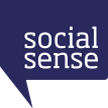Instagram – The Most Harmful App for Mental Health

Instagram is the worst social media app for young people’s mental health, according to a new report by the Royal Society for Public Health (RSPH).
RSPH and the Young Health Movement (YHM) have published a new report, #StatusOfMind, examining the positive and negative effects of social media on young people’s health, including a league table of social media platforms according to their impact on young people’s mental health.
In early 2017, RSPH/YHM conducted a survey of almost 1,500 young people (aged 14-24) from across the UK. The survey asked them to score how each of the social media platforms they use impacts upon 14 health and wellbeing-related issues which were identified by experts as the most significant.
The 14 health and wellbeing-related issues were:
- Awareness and understanding of other people’s health experiences
- Access to expert health information you know you can trust
- Emotional support (empathy and compassion from family and friends)
- Anxiety (feelings of worry, nervousness, or unease)
- Depression (feeling extremely low and unhappy)
- Loneliness (feelings of being all on your own)
- Sleep (quality and amount of sleep)
- Self-expression (the expression of your feelings, thoughts or ideas)
- Self-identity (ability to define who you are)
- Body image (how you feel about how you look)
- Real world relationships (maintaining relationships with other people)
- Community building (feeling part of a community of like-minded people)
- Bullying (threatening or abusive behaviour towards you)
- FoMO (Fear of Missing Out – feeling you need to stay connected because you are worried things could be happening without you)
Based on the ratings young people gave to each platform for each of the health and wellbeing-related issues, the five most popular platforms were given a net average score which were used to establish the league table rankings:
- YouTube (most positive)
- Snapchat
- Instagram (most negative)
Social Media has been described as more addictive than cigarettes and alcohol and is now so embedded in young people’s lives that it is difficult to say it is not affecting their mental health. From the list of health and wellbeing related issues, there are both positive and negatives that have come out of the survey. It is interesting that the two most negative social media platforms (Instagram and Snapchat) are image focused. These platforms will be a huge contributing factor to why young people have expressed anxiety relating to body image.
It is important to say that young people are also having positive experiences from Social Media such as accessing vital health information that they know they can trust. Young people are also able to start and maintain relationships via social media, especially with friends or family who are based internationally.
By Reece Hobson
